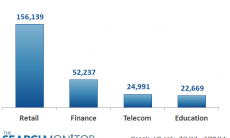It’s an oft-repeated theory within the SEO community: Google (and other search engines) provide higher search rankings to older sites. You might be wondering why this is true–and if you have a new Web site, you might not be very pleased about that. Is this actually true? Why is it true? Will it continue to be true?
The proponents of this theory say that when they test older domains, they rank higher, allegedly because the older the domain, the more likely it is of high quality. In general, it does seem to be true that older domains rank higher than newer domains, but that doesn’t mean that one caused the other. It’s entirely possible that the reason that older domains rank higher is that they’ve had many more years to build up links and other quality markers.
The truth is that no one knows what the ranking factors are for Google, Bing, or any search engine, except the engineers themselves–and they ain’t telling. Sometimes, they tell you that certain factors are (or are not) considered, but usually they remain silent. To my knowledge, they have never confirmed or denied domain age as a ranking factor. Some SEOs swear that it is a factor (albeit a minor one), while others say it is not.
Why would it be a factor? One reason would be that spammers frequently set up new domains to do their dirty work, so there might be a reason for Google to discriminate against very new domains. Most SEOs agree that there is a “sandbox” in which Google places extremely new sites, where they can’t get high rankings until they are shown to be clean. But that doesn’t mean that a site that is three years old will be at a disadvantage against a site that is ten years old.
I don’t have any inside information, but my suspicion is that even if domain age has been a factor that it won’t continue to be (except for that very early sandbox approach). Why do I say that? Because Google’s ranking algorithm has undergone a major redesign in the last year, from the Google Panda update, which has its own ways of detecting which pages are likely to be of high quality. And both Google and Bing are increasingly using social media cues as an adjunct to link analysis in their page quality detection.
The addition of these new factors has to crowd something out, so even if domain age is a (small) ranking factor, it won’t be very important much longer, in my opinion. Link analysis has always been the best indicator of quality, but it could sometimes be fooled by spammers with link farms and other black hat techniques. Now that social media activity and Panda-style machine learning is being added, there are so many ways to correlate quality that I can’t see why the search engines would still need to use something like domain age.
If others out there disagree or have better insight into this issue, please post in the comments.








